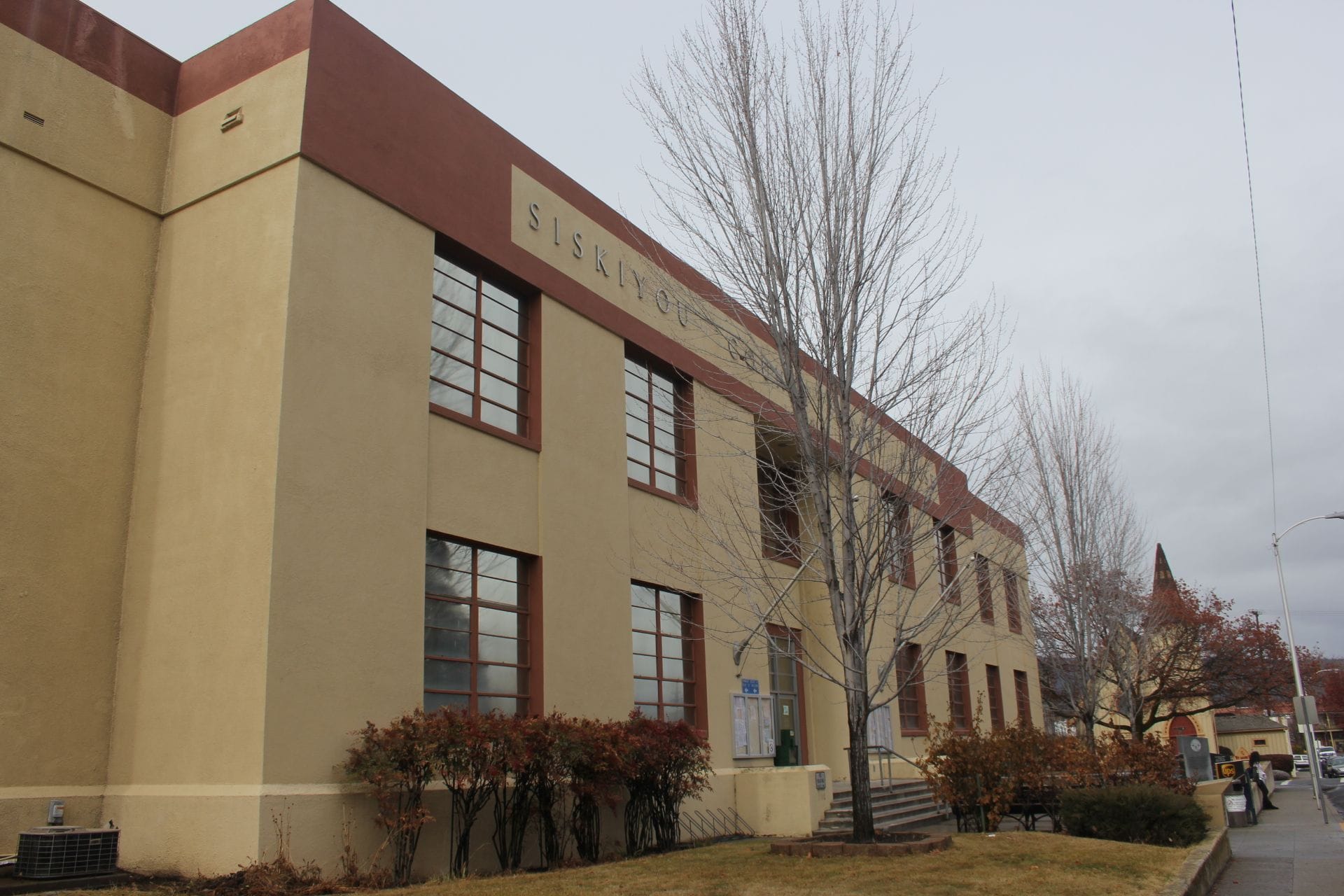Navigating the court system can be challenging. This comprehensive guide provides essential information about the Siskiyou Superior Court, including services, accessing records, and details about the new Yreka courthouse.
Understanding Siskiyou Superior Court Services
This section outlines key information about the Siskiyou Superior Court. The new Yreka courthouse, located at 411 Fourth Street, Yreka, CA 96097, offers modern facilities and consolidated services. You can contact the court by phone at (530) 842-0411. For online resources, visit the Siskiyou Superior Court portal and for portal assistance, email [email protected].
Support and Accessibility
The Siskiyou Superior Court offers a self-help center with free legal information and guidance for those representing themselves. The court utilizes Zoom for remote video and telephone hearings, increasing accessibility for those unable to attend in person. E-filing is also available for some cases.
Accessing Court Records
Court records can be accessed in multiple ways:
| Method | Description |
|---|---|
| Online | Access records digitally via the Siskiyou Superior Court portal. |
| In Person | Visit the court clerk’s office at the new Yreka courthouse. |
| By Mail | Send a formal request to the court with specific details. |
The New Yreka Courthouse: A Modernization of Justice
The new Yreka courthouse replaces older facilities like the Eddy Building Annex, providing enhanced security, improved accessibility, and consolidated services. This modernization reflects the court’s commitment to an efficient and user-friendly justice system.
A Brief History and Future of the Siskiyou Superior Court
Established in 1852, Yreka became the county seat of Siskiyou County, with the original courthouse constructed in 1857. While the new courthouse marks a milestone, the court continues to strive for improved accessibility and efficiency, exploring new initiatives and technologies. Community member testimonials and expanded self-help resources could further enhance the court’s service to the public. Further research could compare the Siskiyou Superior Court’s technological integration with other California courts to identify best practices.
Navigating California Superior Court Cases
California Superior Courts handle a broad range of legal issues, acting as the primary forum for resolving conflicts and upholding the law. Let’s explore the types of cases they manage.
Civil Cases: Resolving Disputes
Civil cases address disagreements between individuals, businesses, or organizations where one party alleges harm. Examples include:
- Property Disputes: Disagreements over boundaries, landlord-tenant issues, adverse possession claims.
- Personal Injury: Negligence or intentional actions causing harm, such as car accidents or medical malpractice.
- Breach of Contract: Failure to fulfill a legally binding agreement.
- Family Law: Sensitive issues such as divorce, child custody, and support.
- Probate: Distributing a deceased person’s assets. Disputes may arise concerning will validity or property distribution.
The diversity of civil cases necessitates a robust legal framework, which the Superior Court delivers.
Criminal Cases: Upholding the Law
Criminal cases involve alleged violations of state law, where the government prosecutes individuals or entities. The severity of the crime determines the categorization:
- Infractions: Minor offenses, typically resulting in fines.
- Misdemeanors: More serious than infractions, potentially involving jail time, fines, and other penalties.
- Felonies: The most serious crimes, carrying substantial penalties, including lengthy prison sentences.
In criminal cases, the prosecution bears the burden of proving guilt “beyond a reasonable doubt,” a high legal standard.
Specialized Departments: Focusing Expertise
Superior Courts often have specialized departments, each focusing on particular case types and often staffed with judges experienced in those areas:
- Family Law Courts: Dedicated to family-related matters.
- Probate Courts: Handling wills, estates, and conservatorships.
- Juvenile Courts: Addressing cases involving minors.
- Small Claims Courts: Resolving disputes involving smaller sums of money.
- Traffic Courts: Specializing in traffic infractions.
- Mental Health Courts: Focusing on cases involving individuals with mental health issues.
This departmental structure improves efficiency and ensures cases receive appropriate attention.
The Importance of Understanding the Superior Court System
Understanding how the Superior Court functions is essential for citizens’ rights and responsibilities, whether involved in a case, serving on a jury, or simply seeking legal knowledge.
Contacting Siskiyou County Court: A Comprehensive Guide
Reaching the right person within the Siskiyou County court system can be straightforward with the right information. This section details various contact methods for general inquiries, specific departments, online assistance, and media requests.
General Contact Information
For general inquiries, call (530) 842-0411 or visit the courthouse at 411 Fourth Street, Yreka.
Contacting Specific Departments
Direct contact with specific departments can expedite your inquiry:
- Civil, Family Law, Juvenile: (530) 842-8238
- Criminal, Traffic: (530) 842-8189
Online Resources and Support
The Siskiyou Superior Court website, www.siskiyou.courts.ca.gov, offers valuable information, though a direct website link cannot be provided. For technical issues with the online portal, email [email protected]. For online payment or case processing problems, calling the main court line at (530) 842-0411 is recommended.
Media Inquiries
Media representatives should visit the courthouse at 411 Fourth Street, Yreka, CA, to submit orders or make inquiries.
| Contact Type | Phone Number | Address | |
|---|---|---|---|
| General Inquiries | (530) 842-0411 | 411 Fourth Street, Yreka, CA 96097 | |
| Civil, Family Law, Juvenile | (530) 842-8238 | ||
| Criminal, Traffic | (530) 842-8189 | ||
| Online Portal Help | [email protected] | ||
| Media Inquiries | 411 4th Street, Yreka, CA |
Court procedures and contact information are subject to change. Direct verification with the court is advised.
Understanding the Role of a Superior Court Judge in California
Superior court judges are pivotal figures in California’s justice system. Elected for six-year terms, they preside over trials, interpret laws, and make impactful decisions in a range of cases.
Responsibilities and Scope of a Judge’s Power
Superior court judges manage trials, ensuring fairness and adherence to legal rules. They review evidence, interpret laws, and make decisions that can affect individuals’ freedoms, finances, and families. Their responsibilities include instructing juries and handing down sentences in criminal cases. Superior court judges handle a wide spectrum of cases, from traffic violations to complex civil and criminal trials. This breadth requires versatile legal expertise.
Path to Judgeship
Becoming a superior court judge usually requires at least ten years of experience as a practicing attorney in California or serving as a judge in a lower court. Aspiring judges typically run in nonpartisan elections. Mid-term vacancies, however, may be filled by gubernatorial appointment.
The Appellate Division
Many superior court judges also serve in the appellate division, reviewing appeals from lower courts within their county. This ensures the correct application of law and fair proceedings.
Understanding the Court System Hierarchy
California’s court system has a hierarchical structure: Superior courts serve as the trial courts, the Courts of Appeal review superior court decisions, and the Supreme Court stands as the highest judicial authority. The appellate division of the superior court plays a crucial role in this system by providing an initial layer of review for decisions made in lower courts.
This information provides a general overview of superior court judges. Legal processes can be complex, and consulting with a qualified attorney is recommended for those facing legal issues. It’s important to note that the complexity of the legal system and the potential for evolving interpretations of law can impact outcomes. This underscores the importance of having informed legal counsel when navigating a legal matter.
Learn about the unique history and appeal of Shiremanstown, a town with hidden charms. Uncover the legal processes and inner workings of the Southfield 46th District Court Southfield MI for a deeper understanding of its community role.
- Unlock Water’s Symbolism: A Cross-Cultural Exploration - April 20, 2025
- Identify Black and White Snakes: Venomous or Harmless? - April 20, 2025
- Unlocking Potential: Origins High School’s NYC Story - April 20, 2025
















2 thoughts on “Siskiyou Superior Court: Your Guide to Court Services, Records, and the New Yreka Courthouse”
Comments are closed.